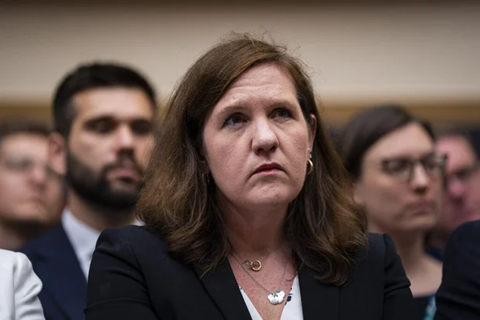Legal director Sandeep Vaheesan emphasizes that Europe doesn’t need to copy America’s model to be competitive; it should double down on strong competition policy to avoid the economic imbalances and harms baked into the US approach.
In this co-written essay, legal director Sandeep Vaheesan and chief economist Brian Callaci deliver the argument that today’s “state capacity” discourse wrongly blames democratic procedures for government failure, when the real solution is not deregulated, top-down speed but renewed democratic governance that balances effective state action with public participation and legitimacy.
Food program manager Claire Kelloway comparing New York City mayor Zohran Mamdani’s proposed city-run grocery stores to government-run grocery stores for the military.
CJL program manager Karina Montoya takes stock of Google’s YouTube TV growth in live TV streaming, and what its clashes with TV programmers mean as Big Tech continues to be an unregulated actor in streaming services.
CJL director Courtney Radsch contends that both the Netflix and Paramount–Skydance bids for Warner Bros. Discovery would deepen media concentration in ways that endanger free speech, audience choice, and democracy by placing cultural storytelling and news under the control of conglomerates willing to bend to political pressure.
Europe research fellow Claire Lavin co-wrote an article arguing that Google’s proposed $32 billion acquisition of Wiz would dangerously concentrate control over Europe’s cloud security infrastructure in the hands of a U.S. tech gatekeeper, threatening competition, data governance, and digital sovereignty—and must be rigorously investigated and potentially blocked by EU regulators.
CJL director Courtney Radsch argues that today’s AI systems—shaped by market concentration, surveillance-based business models, and weak regulation—are evolving into an infrastructure of cognitive control that threatens freedom of thought, human agency, and democracy unless firm legal, structural, and human-rights–based constraints are imposed.
Policy director Phil Longman warns that unchecked Big Tech and AI monopolies are rapidly undermining the economic foundations of a free press and urges urgent public support for policy-focused journalism, like the Washington Monthly, as essential to preserving democracy and meaningful freedom of speech.
Legal director Sandeep Vaheesan explores the debate between antitrust reformers and Marxist critics, arguing that antitrust law can serve as a tool for democratizing economic life when paired with broader political movements.
Reporter Austin Ahlman writes about how the Supreme Court’s likely overturning of Humphrey’s Executor could end agency independence and transform regulators like the FTC into direct instruments of presidential power.











